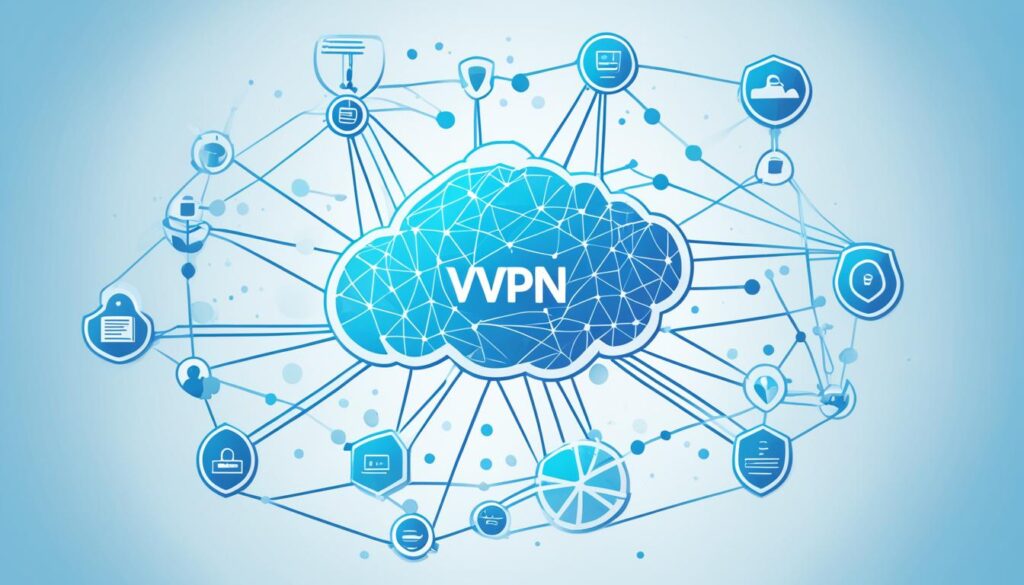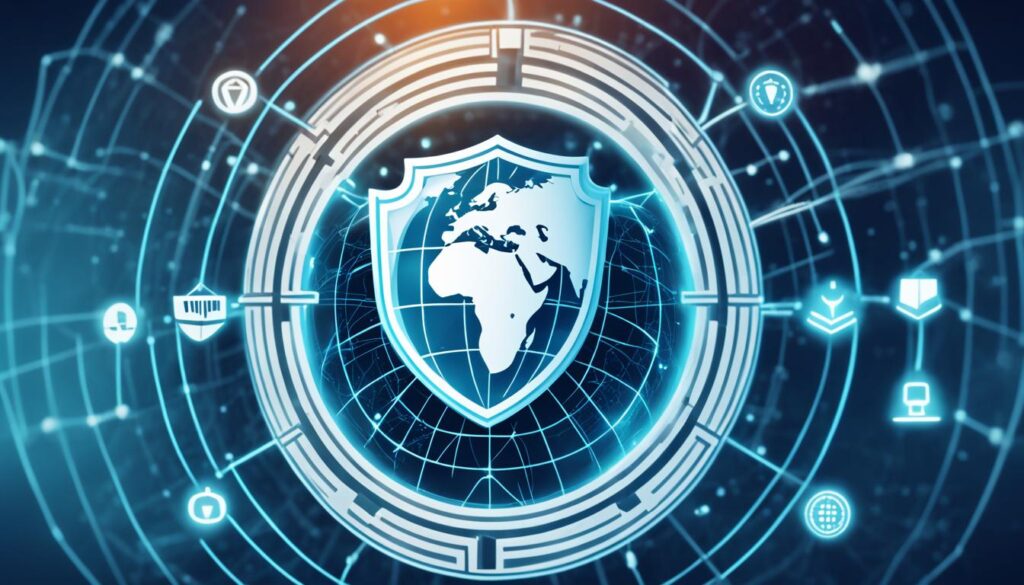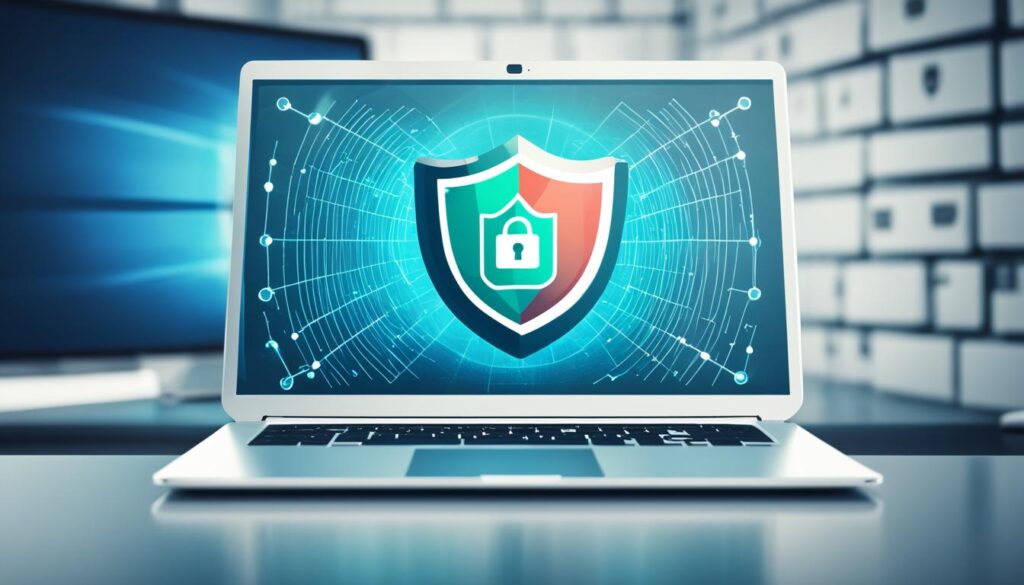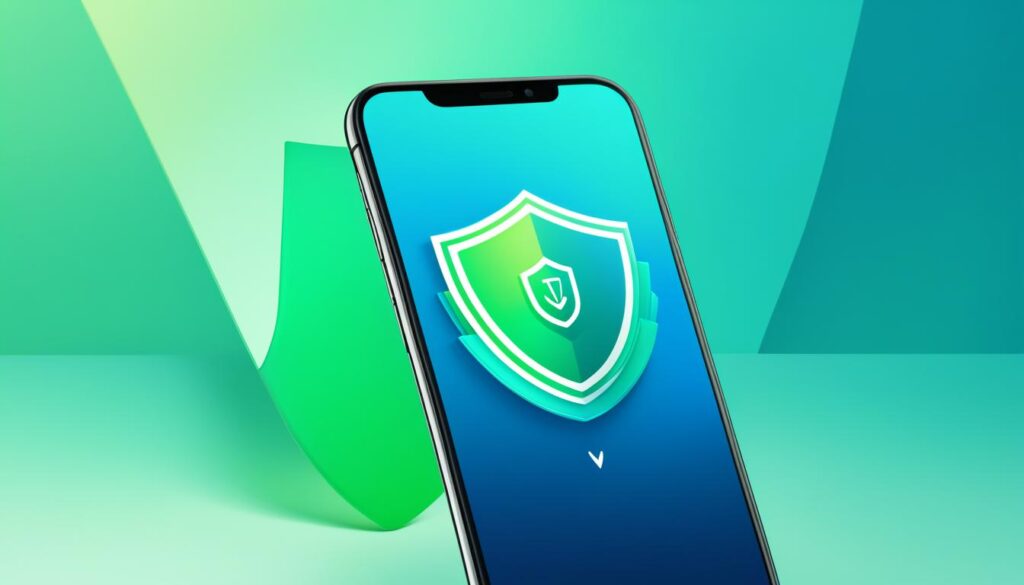I like to keep my online activities private and secure. Free VPNs sound great because they let you browse safely without paying. But, the reality is, free VPNs are not always safe. The tools and knowledge needed to offer a big, secure network cost a lot of money. So, you either pay for a top-notch VPN with cash, or you pay with your personal information.
Recent studies show that 86% of free VPN apps on iPhones and Androids have shady privacy policies. Many of these apps even share data with the Chinese government. What’s more, 80% of the free ‘top 20’ VPNs in Apple’s store might be illegally sharing data with other companies. On Android, a staggering 214 million people have downloaded apps that might misuse their information.
Even though free VPNs sound like a good deal, they bring more risks and limits than they do benefits. In the next parts, we’ll look deeper into why going for a trustworthy, paid VPN is safer for keeping your online life private and safe.
Key Takeaways
- Free VPNs often have unacceptable privacy policies, including sharing user data with third parties and authorities.
- Many free VPN apps on popular app stores are breaking rules and sharing user data.
- Millions of downloads of potentially unsafe free VPN apps represent a significant risk of data breach and malicious activities.
- Paid VPN services are generally more secure and transparent, as they need to maintain a sustainable business model.
- Protecting your online privacy and security is worth the investment in a reputable paid VPN service.
The Perils of Free VPNs
Free VPNs might seem handy, but they carry big risks. These risks can harm your privacy and security. Many free VPNs don’t fully tell you what they do. They often have bad privacy practices.
Lack of Transparency and Poor Privacy Practices
38% of free VPNs for Android contain malware. This is a huge problem despite claiming to keep your browsing safe and anonymous. Mobile ransomware is up by 54%. Kaspersky found a 60% increase in password-stealing Trojans in 2019.
Potential for Data Harvesting and Selling
Free VPNs often track what you do online. Only 28% of free VPNs don’t track, compared to 65% of paid ones. They might sell your data, which is bad for your online privacy. It could lead to many kinds of attacks.
Increased Risk of Malware Infection
Free VPNs are high risk for malware infection. Cybercriminals use them to spread malware and get your info. This risks your internet freedom and data protection.
The Truth About Free VPN Services
Looking for a free VPN service is tempting for your online safety and privacy. But, VPN security, anonymous browsing, and encrypted connections are at risk. Many free VPNs hold malware that can harm your online privacy and internet freedom.
High Percentage Contain Malware
Surprisingly, 38% of free VPNs for Android have malware, despite promising better data protection. The risk is high with mobile ransomware on the rise. Choosing a VPN carefully is essential, as malware can cause big problems.
Aggressive Ad Tracking and Serving
Free VPNs raise cash through aggressive ad tracking. This can harm your anonymous browsing and encrypted connections. For example, HotSpot Shield VPN faced a complaint for breaking privacy laws. They were found secretly selling user data to ads companies.
Bandwidth Throttling and Limited Server Options
Free VPNs might not worry you for malware or data but can with pop-ups and bandwidth throttling. They have few server options. This is bad for streaming services. Many services block free VPN IP addresses.
The Importance of Online Privacy
In today’s world, keeping your online privacy safe is very important. The internet is now a big part of our lives. We use it for talking, fun, and learning. Knowing how to protect our personal info and what we do online is key.
Understanding Virtual Private Networks (VPNs)
A virtual private network (VPN) is a great way to keep your online privacy safe. VPNs create a private, hidden path between your device and the internet. This keeps your internet activity away from others. With a VPN, your IP address is hidden. Your online talks and sharing stay private.
The Role of Encryption and IP Masking
VPNs use strong encryption to keep your info safe. This encryption turns your data into a secret code. Even if someone tries to see it, they can’t without the right key. VPNs also hide your IP address. This makes it hard for others to follow what you do online or find you.
Using a VPN means more freedom and safety when you use the internet. No matter if you’re looking at websites, watching shows, or doing anything online. Picking a good VPN company is important. They handle all your internet traffic and should care about your online privacy.
Paid vs. Free VPN Services
The choice between paid and free VPN services is crucial for security and privacy. Paid VPNs are usually better than free ones.
Advantages of Paid VPNs
Paid VPNs give you more secure encryption and avoid tracking your online actions. They make money from subscriptions. This means they can afford better technology to keep your VPN safe and reliable.
Also, paid VPNs have more servers and often update their network with new IP addresses. So, you can watch your favorite shows without any blocks.
Limitations of Free VPNs
Free VPNs might sell your data to make money. They could also show lots of ads or even slow down your connection. This isn’t good for your privacy or your online experience.
So, if you want to really protect your online info, a paid VPN is a good idea. They offer better security and privacy. It’s usually better than risking it with a free VPN.
Evaluating VPN Providers
When you pick a VPN to shield your online privacy and security, it’s important to check what they offer. Look into how well they encrypt your data and their extra security features. Think about their promise to keep no logs and how strong their commitment to your data privacy is. Also, check the size of their network and their speeds.
Encryption Standards and Security Features
Strong encryption keeps your VPN secure. Choose a provider that uses top protocols like AES-256 and OpenVPN. This will protect your online data. Good VPNs also have features like kill switches and DNS leak protection for more security.
No-Log Policies and Data Privacy
A policy of not keeping logs is crucial. Find VPNs that are trusted not to watch or save what you do online. Having this backed by outside audits makes it even better. It means your personal info and browsing remain private.
Server Locations and Connection Speeds
The number and spread of a VPN’s servers matter. More server locations mean you can get around region blocks and access global content. It also means better and more reliable internet connections. So, look for a VPN with many servers that promise fast speeds.
By looking at these points, you can find a VPN that meets your privacy and security needs. This lets you use the internet with the confidence that your data is safe.
Top Recommended Paid VPN Services
Online privacy and security are vital. That’s why investing in a trustworthy virtual private network (VPN) is key. In our research, we found NordVPN, Surfshark, Hotspot Shield, PrivadoVPN, Atlas VPN, and TunnelBear to be among the best. They all have advanced encryption, strong security features, and no-log policies. Also, they offer lots of server networks for a safe and fast VPN experience.
VPN Provider |
Encryption |
No-Log Policy |
Server Locations |
Pricing |
|---|---|---|---|---|
NordVPN |
AES-256-GCM |
Strict no-logs |
5,500+ servers in 60+ countries |
Starts at $3.71/month |
Surfshark |
AES-256-GCM |
Strict no-logs |
3,200+ servers in 100+ countries |
Starts at $2.30/month |
Hotspot Shield |
AES-256-GCM |
Strict no-logs |
3,000+ servers in 80+ countries |
Starts at $7.99/month
|
PrivadoVPN |
AES-256-GCM |
Strict no-logs |
2,000+ servers in 50+ countries |
Starts at $3.99/month |
Atlas VPN |
AES-256-GCM |
Strict no-logs |
750+ servers in 40+ countries |
Starts at $1.99/month |
TunnelBear |
AES-256-GCM |
Strict no-logs |
1,000+ servers in 50+ countries |
Starts at $5.75/month |
Top paid VPN services bring great features for those who want strong online privacy and security. They offer top encryption, assurance of no logs, and many servers. All this at competitive prices, showing they value data protection and internet freedom.

Best Practices for Online Safety
Keeping your online life safe is key in today’s world. A great tool for this is a virtual private network (VPN). A VPN is especially important on public Wi-Fi networks. It keeps our online actions safe.
Using a VPN for Public Wi-Fi
Public Wi-Fi spots are risky for cyberattacks. They’re not as safe as private networks. A VPN helps by hiding our real IP address and keeping our online moves secret and protected from cybercriminals.
Enabling Additional Security Features
Using a VPN is good, but we need more to be safe online. It’s smart to use two-factor authentication on our accounts. This stops anyone unauthorized from getting in.
Regularly Updating Software and Devices
Updating our software and devices is vital for online safety. Updates fix bugs and add new security. This makes our digital stuff safer from new cyber threats.
By following these steps, we make our online life much safer. We can keep our personal info secure. Even with new dangers, we stay protected on the internet.
The Future of VPNs and Online Privacy
The digital world is always changing. This means new challenges for online privacy and security. Many governments are making strict rules about how data is used. Meanwhile, VPN technology is getting better, adding features like multi-hop connections and RAM-based servers.
It’s really important for people to keep up with these changes. This helps keep their online activity safe and private.
Emerging Threats and Evolving Regulations
Caring about privacy is getting more serious for governments worldwide. They are making new laws that can affect how VPNs work. Some countries now want VPN providers to keep logs of what users do or get special licenses.
These changes are hard for VPN services that promise to keep their users’ information private. To make things more complicated, cybercriminals are also getting smarter. They’re finding ways to attack the security of VPNs. Keeping informed about the latest threats is key to staying safe online.
Advancements in VPN Technology
But, there’s good news. VPN technology is growing to meet these challenges head-on. Top VPN companies are adding new features like multi-hop connections. This sends your internet traffic through several secure paths before reaching its destination.
There are also servers that don’t store any information, called RAM-based servers. This means that if a server is ever taken, your information stays private. Some VPNs even have tools to fight off online threats, adding more security layers for you.

In this changing digital world, reliable and secure VPN services are more important than ever. People who keep informed about these changes can protect their remote access and keep their data safe for many years to come. Learning and staying updated on VPN technology is crucial.
Conclusion
Free VPNs might look good, but they often have big risks. These risks include not being clear about what they do, taking your data, showing lots of ads, and slowing down your internet. Paid VPN services are better. They offer more security, better privacy, and keep your data safe.
Getting a good, paid VPN is smart for staying safe online. With a trusted VPN, I get to surf the web without people knowing who I am. I also get safe connections and can get into things from far away without worries.
The online world is always changing, with more VPN questions and risks. It’s key to keep learning and being careful. A reliable paid VPN keeps my internet actions and browsing private and safe, no matter where I am.



